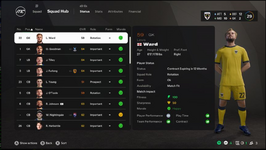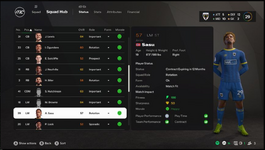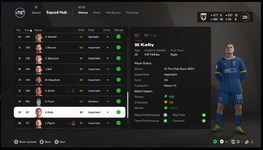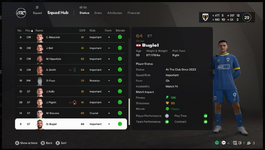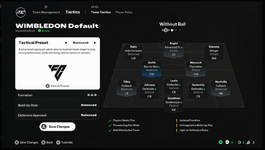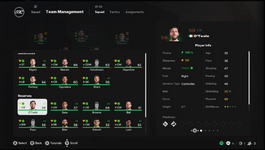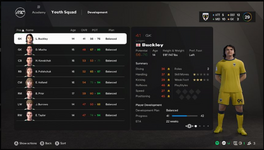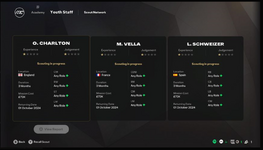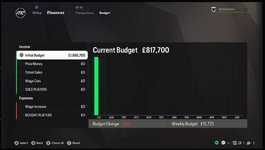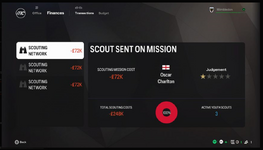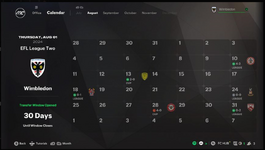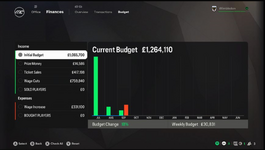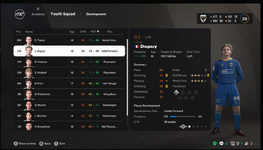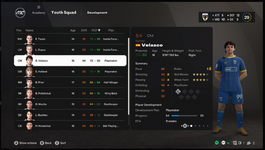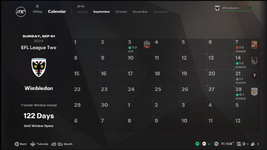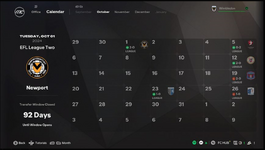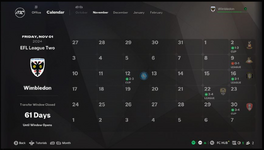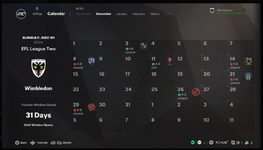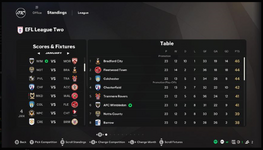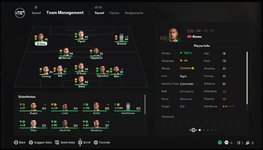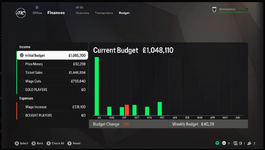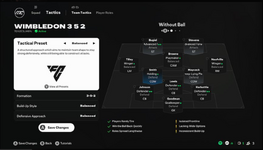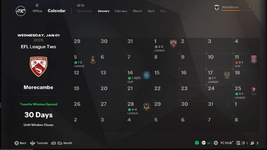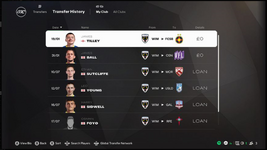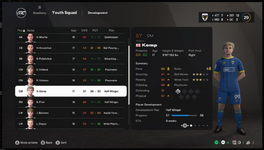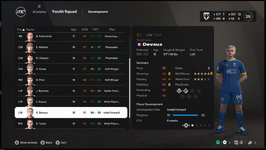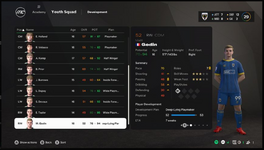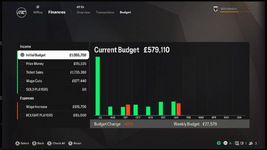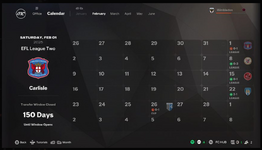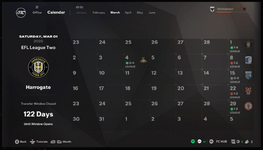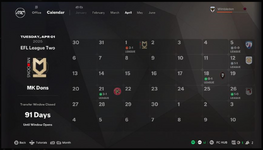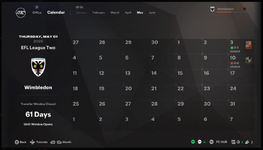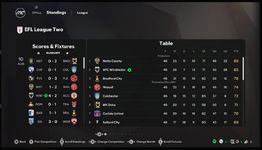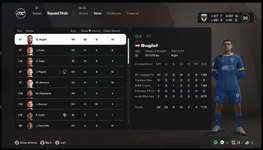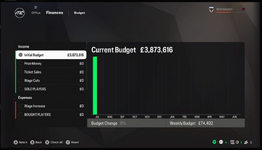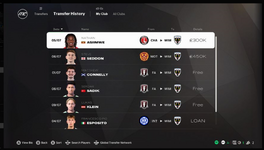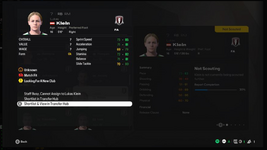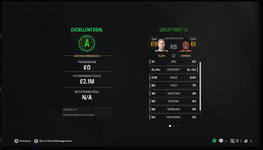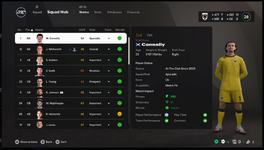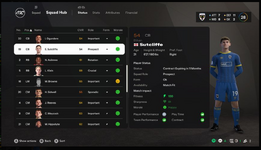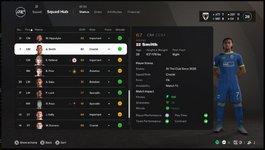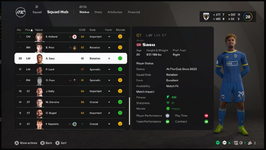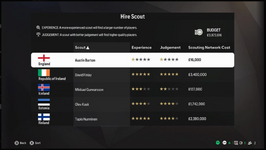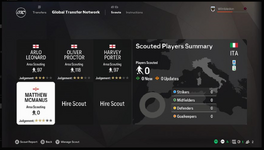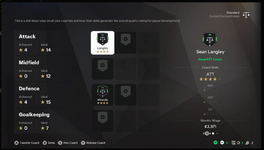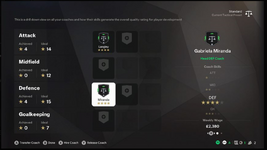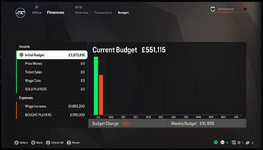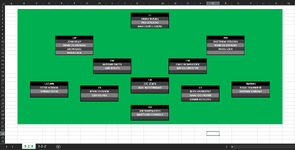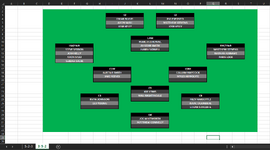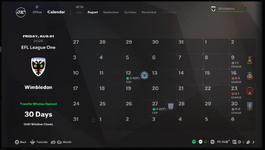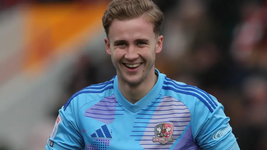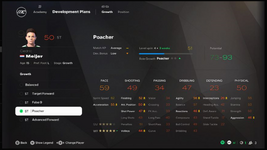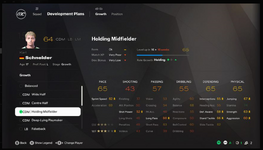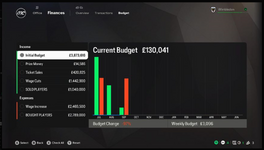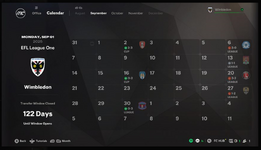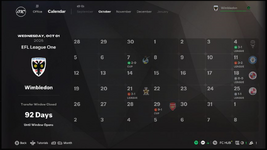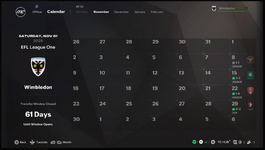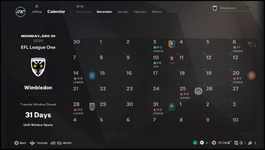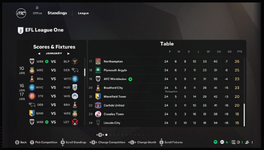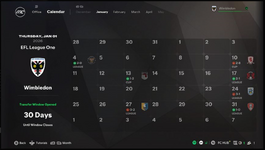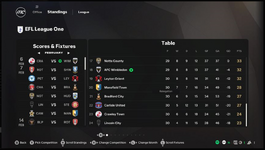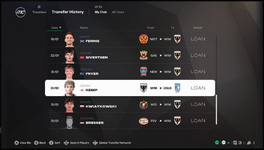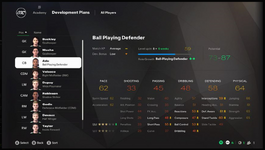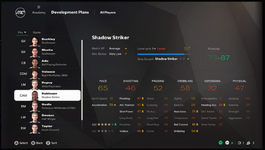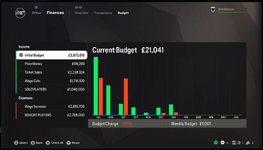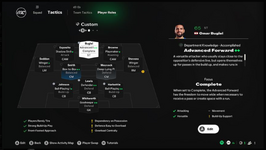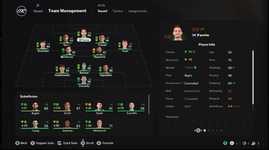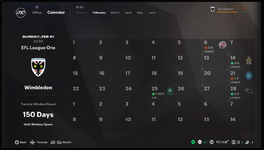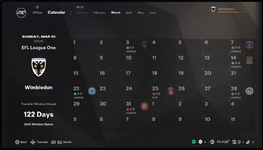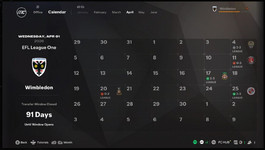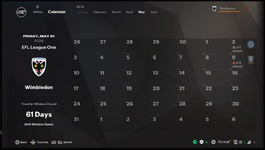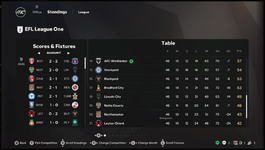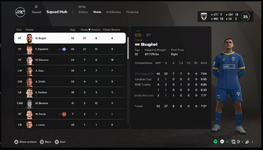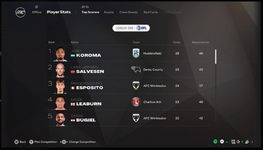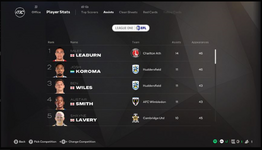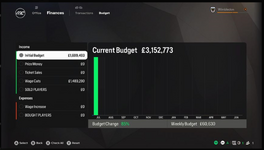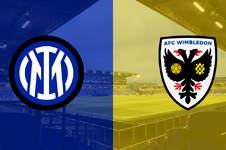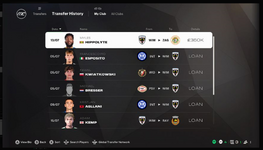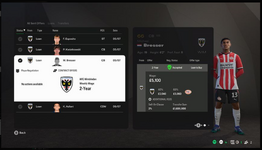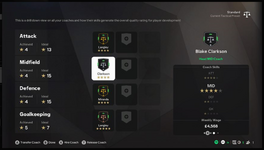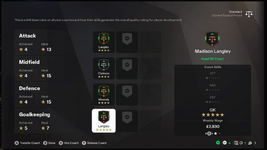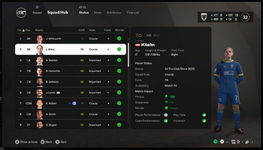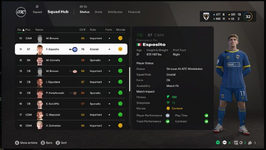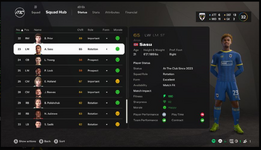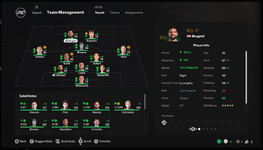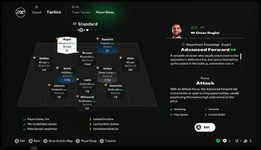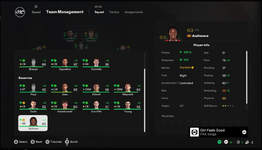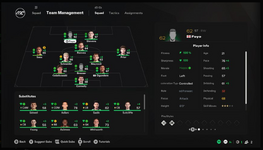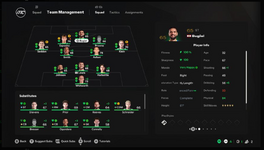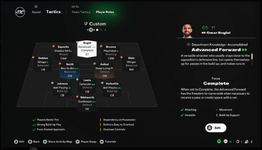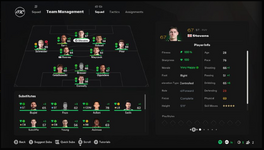Hey there, everyone. Marcie here and I'm chiming in to announce that I've started up a series on EA's FC 25. In this playthrough, I'm going to be taking control of a team I actually have a soft spot for, and that team is going to be none other than AFC Wimbledon.
AFC Wimbledon for the uninitiated, are the phoenix club of the former Wimbledon FC. Wimbledon FC were a team established in 1889 that spent much of its history down in the lower leagues until 1977 when they finally made it into the Football League, but it wasn't until the 1980s when they caught the attention of the football world. From obscurity, the team quickly rose through the ranks, achieving promotion 4 times in just 9 years. From entering the Football League itself, Wimbledon FC were now in the top tier of the English football pyramid. It's quite the journey for a scrappy underdog team.
But the journey didn't stop there, because the height of that journey came at the 1988 FA Cup final. However, their opponents in that game were the 1980s Liverpool squad. Yes, THAT Liverpool squad. Everyone thought it was a foregone conclusion Liverpool was going to win, but the Dons had other plans. Before the halftime whistle, the Dons scored off a set piece. For the rest of the game, they defended well and held onto the lead. But then Liverpool was awarded a penalty late in the game and the one who was taking the shot was none other than John Aldridge, who was the league's top scorer at the time. Aldridge took the shot, but failed to score thanks to a big time save from Wimbledon's captain, Dave Beasant. 1-0 was the final score, and as a famous quote said, the Crazy Gang have beaten the culture club. It was the biggest upset in FA Cup history, and not only that, but it was also the first time a goal had been saved on a penalty in the FA Cup Final. It was the club's greatest achievement to date.
But unfortunately, that FA Cup win would come at a steep cost and have a number of negative effects. The club would find themselves hemorraging money, so much to the point where they would have to sell off most its best players. Then the Hillsborogh disaster happened and the subsequent Taylor report led to mandate that all modern football stadiums were to be converted to all-seaters. This proved to be an issue for Wimbledon FC, as their home ground, Plough Lane remained largely untouched throughout the years. To conver the stadium was considered financially impossible by their owner at the time. So in 1991, it was decided that the team would play their home games at Crystal Palace's Selhurst Park on a temporary basis until they could secure a new home.
A new stadium never came though. The club fell on hard times, and in 1997, were sold to 2 Norwegian businessmen. Plough Lane was sold to Safeway Supermarkets. In that same year, a consortium led by Pete Winkleman and backed by IKEA and Walmart were looking to secure a retail deal in Milton Keynes. This deal would include an IKEA, a super Walmart, and most notably, a 30K stadium....a stadium which would be on par to Premier League standards, with the idea of it bringing in increased foot traffic for IKEA & Walmart. But there was a problem with that plan. Milton Keyne's local team was playing in the 8th division of football, so instead of doing things the way it should have been done, establishing a team from the ground up, Winkleman wanted to circumvent all that by purchasing an already existing club and move them to Milton Keynes.
In North American sports, we've seen this a lot with teams relocating elsewhere, and that's because they're seen & treated as franchises. This is not the case with football in the UK. The sport is a way of life, and local football clubs serve as a representation of the communuity they were founded in, which the supporters take a great deal of pride in. To take a club, uproot them, and relocate it elsewhere is considered an act of heresy. It's the line you don't cross, but that's exactly what Winkleman did when he set his sights on the struggling Wimledon FC. The club were in financial ruin and in 2000, saw relegation from the Premier League. With the team approaching bankruptcy, Winkleman approached ownership to purchase the club, proposing to relocate them. Ownership agreed and sold the club to Winkleman in 2001. The club went into administration and the process of relocation was underway. For the first time in English football history, a team was being relocated for another city.
The move was met with widespread condemnnation by everyone within the football community, including the FA themselves who stepped in hopes to put a stop to it, but to no avail as the appeal courts ruled in favor of the relocation. Just like that, +100 years of history, what they've accomplished, all ripped from the hearts of the Wimbledon community. From that day on, Wimbledon FC was no more. It was the end of an era.
....or so it seemed.
One night at The Fox & Grapes Pub, a group of people gathered together and discussed the idea of starting up a phoenix club from the ashes. It was at that moment AFC Wimbledon was born, and thus began the process of starting over from scratch, but this time with the promise of the club being fan-owned so that this could never happen again.
Open tryouts were held at a local park, where over 230 people applied, and from that crop of talent would emerge the innaugural AFC Wimbledon squad. They arranged a deal to play at Kingsmeadow, but just as importantly, they had their first sponsor, who turned out to be none other than Football Manager. With everything now set in motion, AFC Wimbledon were able to begin their journey from the very bottom of the football pyramid. Fast forward to 9 years later in 2011 and Wimbledon were finally back in the football league. Since then, they've hovered around. They've made it to League One and spent a few years before being relegated back to League Two. The journey has not been without its struggles, but the story itself is one you can't help but feel proud of. It's the story of a community refusing to let their club, their identity, and their livelihood taken away from them.
Ladies & gentlemen, this is AFC Wimbledon. A club owned by the fans, for the fans. Welcome to grassroots football!
AFC Wimbledon for the uninitiated, are the phoenix club of the former Wimbledon FC. Wimbledon FC were a team established in 1889 that spent much of its history down in the lower leagues until 1977 when they finally made it into the Football League, but it wasn't until the 1980s when they caught the attention of the football world. From obscurity, the team quickly rose through the ranks, achieving promotion 4 times in just 9 years. From entering the Football League itself, Wimbledon FC were now in the top tier of the English football pyramid. It's quite the journey for a scrappy underdog team.
But the journey didn't stop there, because the height of that journey came at the 1988 FA Cup final. However, their opponents in that game were the 1980s Liverpool squad. Yes, THAT Liverpool squad. Everyone thought it was a foregone conclusion Liverpool was going to win, but the Dons had other plans. Before the halftime whistle, the Dons scored off a set piece. For the rest of the game, they defended well and held onto the lead. But then Liverpool was awarded a penalty late in the game and the one who was taking the shot was none other than John Aldridge, who was the league's top scorer at the time. Aldridge took the shot, but failed to score thanks to a big time save from Wimbledon's captain, Dave Beasant. 1-0 was the final score, and as a famous quote said, the Crazy Gang have beaten the culture club. It was the biggest upset in FA Cup history, and not only that, but it was also the first time a goal had been saved on a penalty in the FA Cup Final. It was the club's greatest achievement to date.
But unfortunately, that FA Cup win would come at a steep cost and have a number of negative effects. The club would find themselves hemorraging money, so much to the point where they would have to sell off most its best players. Then the Hillsborogh disaster happened and the subsequent Taylor report led to mandate that all modern football stadiums were to be converted to all-seaters. This proved to be an issue for Wimbledon FC, as their home ground, Plough Lane remained largely untouched throughout the years. To conver the stadium was considered financially impossible by their owner at the time. So in 1991, it was decided that the team would play their home games at Crystal Palace's Selhurst Park on a temporary basis until they could secure a new home.
A new stadium never came though. The club fell on hard times, and in 1997, were sold to 2 Norwegian businessmen. Plough Lane was sold to Safeway Supermarkets. In that same year, a consortium led by Pete Winkleman and backed by IKEA and Walmart were looking to secure a retail deal in Milton Keynes. This deal would include an IKEA, a super Walmart, and most notably, a 30K stadium....a stadium which would be on par to Premier League standards, with the idea of it bringing in increased foot traffic for IKEA & Walmart. But there was a problem with that plan. Milton Keyne's local team was playing in the 8th division of football, so instead of doing things the way it should have been done, establishing a team from the ground up, Winkleman wanted to circumvent all that by purchasing an already existing club and move them to Milton Keynes.
In North American sports, we've seen this a lot with teams relocating elsewhere, and that's because they're seen & treated as franchises. This is not the case with football in the UK. The sport is a way of life, and local football clubs serve as a representation of the communuity they were founded in, which the supporters take a great deal of pride in. To take a club, uproot them, and relocate it elsewhere is considered an act of heresy. It's the line you don't cross, but that's exactly what Winkleman did when he set his sights on the struggling Wimledon FC. The club were in financial ruin and in 2000, saw relegation from the Premier League. With the team approaching bankruptcy, Winkleman approached ownership to purchase the club, proposing to relocate them. Ownership agreed and sold the club to Winkleman in 2001. The club went into administration and the process of relocation was underway. For the first time in English football history, a team was being relocated for another city.
The move was met with widespread condemnnation by everyone within the football community, including the FA themselves who stepped in hopes to put a stop to it, but to no avail as the appeal courts ruled in favor of the relocation. Just like that, +100 years of history, what they've accomplished, all ripped from the hearts of the Wimbledon community. From that day on, Wimbledon FC was no more. It was the end of an era.
....or so it seemed.
One night at The Fox & Grapes Pub, a group of people gathered together and discussed the idea of starting up a phoenix club from the ashes. It was at that moment AFC Wimbledon was born, and thus began the process of starting over from scratch, but this time with the promise of the club being fan-owned so that this could never happen again.
Open tryouts were held at a local park, where over 230 people applied, and from that crop of talent would emerge the innaugural AFC Wimbledon squad. They arranged a deal to play at Kingsmeadow, but just as importantly, they had their first sponsor, who turned out to be none other than Football Manager. With everything now set in motion, AFC Wimbledon were able to begin their journey from the very bottom of the football pyramid. Fast forward to 9 years later in 2011 and Wimbledon were finally back in the football league. Since then, they've hovered around. They've made it to League One and spent a few years before being relegated back to League Two. The journey has not been without its struggles, but the story itself is one you can't help but feel proud of. It's the story of a community refusing to let their club, their identity, and their livelihood taken away from them.
Ladies & gentlemen, this is AFC Wimbledon. A club owned by the fans, for the fans. Welcome to grassroots football!


